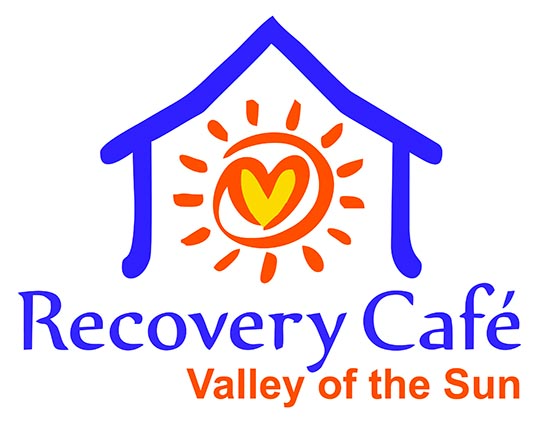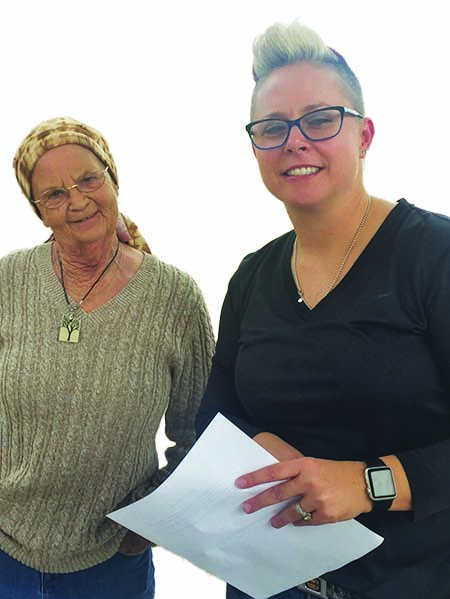Is it Time to Learn How to Thrive? By Tim McLeod, NCRC-II Director of Alumni Relations & Connect365 Sierra Tucson Play it safe. Don’t rock the boat. Stay in...
Is it Time to Learn How to Thrive?
By Tim McLeod, NCRC-II
Director of Alumni Relations & Connect365 Sierra Tucson
Play it safe. Don’t rock the boat. Stay in your lane. If this is what you tell yourself most often then just by continuing to read this article you may be weaving way out of your lane and rocking the boat. But I challenge you to read on— that is if you care to challenge your thrive habits.
What are thrive habits?
They are new habits we insert into our lives to positively shake up the status quo. Many of us have our daily routines we are quite comfortable with, and stepping out of them and trying something new may not typically pop up on our radar. Instead, what happens is we typically stay right where we are and do what we normally do instead of “risking it” and doing something out of the ordinary. To often we avoid opportunities to live fully — to thrive. In that spirit, I’ll share one of the times I (begrudgingly) stepped out of my comfort zone — despite what my internal tape recorder was playing over and over in my mind.
My Yellow Vase
Years ago, some of my peers in my 12-step meeting group thought it would be fun to make pottery together. Everyone was enthusiastic about the idea, except me. While I didn’t voice my hesitation aloud, I told myself I wasn’t going to go. I couldn’t picture spending a Saturday afternoon in a pottery studio painting a mug or a statue and then firing it in the kiln to bring home later. I was convinced I would look silly sitting there, paintbrush in hand.
Yet, somehow, I ended up going. I enjoyed the camaraderie with this group of folks that I really liked, and to this day, when I look at the bright yellow vase I made (which is still proudly displayed on a shelf in my house), it makes me smile. It reminds me of the laughter and connection we all enjoyed that day. It remains for me a good memory of a fun afternoon. I also gained the extra satisfaction of knowing I did something I normally wouldn’t have done.
How many times do we convince ourselves that taking part in something that is outside of what we typically do isn’t for us, or that it won’t be a fun activity and worthy of our time and effort? I’ve been there plenty of times. In my mind I say things like, “I’m not going to like that. I’m going to look dumb doing that. I don’t know anyone there. What will people think of me?”
The old saying, don’t knock it before you try it is applicable here and, in any circumstance, where we are determined to find all the reasons why we don’t want to do something. Those of us in recovery have spent a lot of our lives just surviving and making excuses. Thriving isn’t even in the realm of possibility within our minds. We are used to a life of just imagining and dreaming.
We want what others have, but too many times we are hesitant to seek it out for ourselves. We revert to that default setting of staying home and sticking with our familiar routines. That is why thriving takes a conscious attempt.
Learning How to Thrive
I once tried something called “leisure mapping.” The therapist who was a proponent of this idea would ask his clients to do a little research each week and find something that looked fun to do for the upcoming weekend and then venture out and do it. Go to an art museum. Try a sport you’ve been meaning to learn. The idea of leisure mapping is to supplement your ordinary leisure activities with something you wouldn’t normally think to do. If you want to try leisure mapping to launch into developing your own thrive habits, consider these three tips:
Be accountable to someone. Make your leisure activity plan known. Tell your therapist what activity you are committing to. Or ask a friend to join you. By telling someone what activity you are planning to do, or by inviting someone along with you, it is more likely you will follow through.
Own your choices. If you decide not go through with your plan admit it to yourself and/or someone else and explore the reason you didn’t go through with it. What was the reason you chose to renege? By examining the reason, you may learn to overcome your fears and insecurities.
Know that trying is good enough. Did you decide to sign up for a tennis lesson and discovered your serve was off every time or your backhand landed the ball over the fence? Give yourself permission to be a novice. I always say you have to learn to crawl before you can walk. Tell yourself you are seizing the opportunity to learn and that is better than sitting at home wondering what it would be like to be a tennis player or whatever activity you choose.
Author, Neale Donald Walsch who wrote a series of books, Conversations with God, is famous for his quote —
“Life begins at the end of your comfort zone.”
Many of us in recovery understand the experience of walking into our first 12-step meeting. It’s not easy. All eyes are on you. It takes courage. You are the new person in the room. It is certainly the end of many people’s comfort zones, yet for many, it is often when a new life of thriving begins.
My yellow ceramic vase became my symbol that when I put my mind to it, I can find my way past fear, shame, self-doubt, and all the obstacles that prohibit a life of possibilities. Is it time for you to create yours?
If you want to learn how to start your path of recovery to find your own miracle, contact me at [email protected]. For more on Sierra Tucson visit www.sierratucson.com
About the author
Tim McLeod joined the Sierra Tucson team as Alumni Coordinator in February 2001 and was named Director of Alumni Relations & Connect365 in May 2018.
He offers encouragement to others in recovery through follow-up phone calls, facilitating workshops, assistance with local Alumni Support & Continuing Care Groups, and the Alumni eNews, “Beyond the Miracle.”































